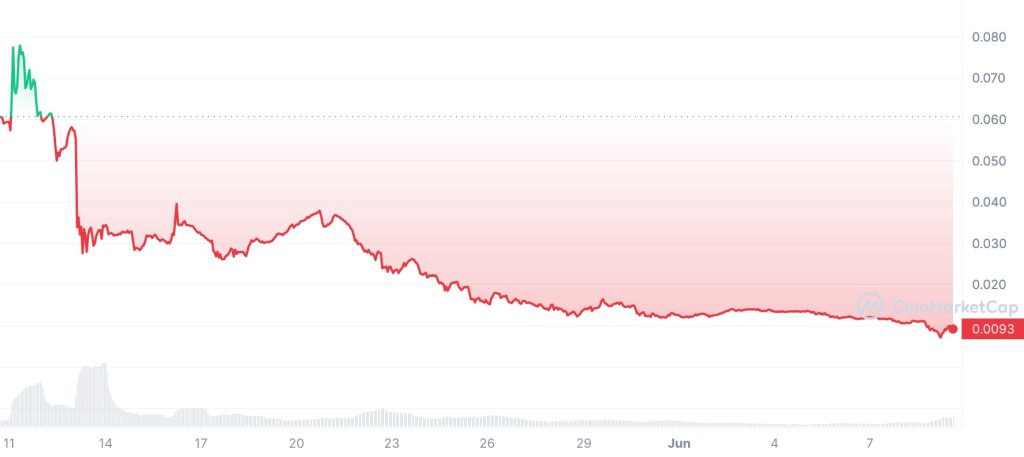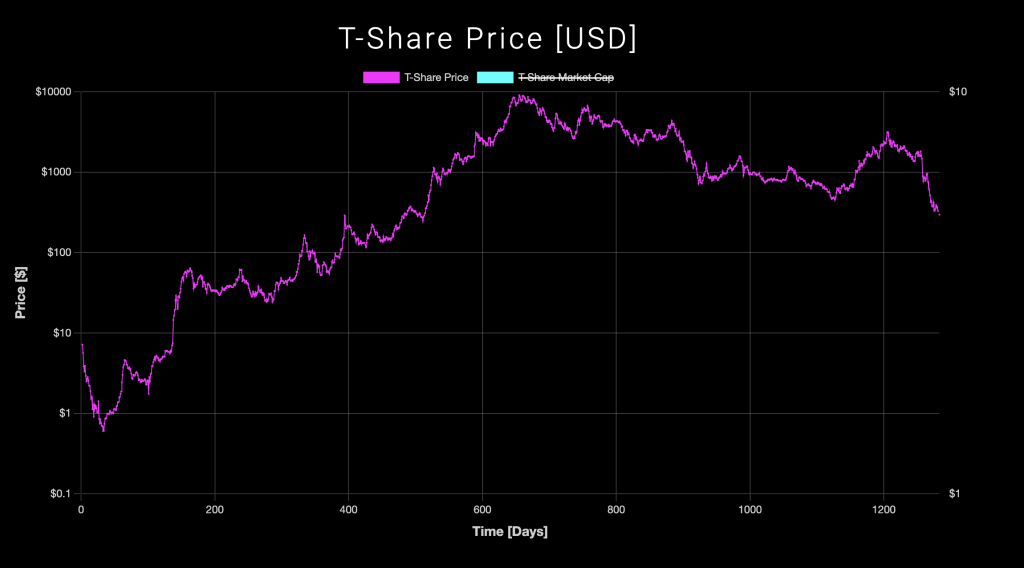
In the dynamic world of cryptocurrencies, HEX, a project associated with Richard Heart, has recently come under scrutiny. Over a short span of 20 days, HEX experienced a significant price drop, plummeting from over seven cents to a mere 1.4 cents.

This dramatic decline is not seen as a buying opportunity by some, but rather as a warning sign of a potential Ponzi scheme nearing its end. When the growth of such schemes comes to a halt, they often enter a relentless downward spiral. This pattern is not unique to HEX; similar trends have been observed in other crypto projects like Tomb Shares, Olympus DAO, Time Wonderland, and StrongBlock.
Doge2014 raises 500K in days celebrating Dogecoin. Make potentially big profits and get in on exclusive airdrop!
Show more +One of the key concerns raised is about the T-share price, which represents the price of staked HEX. While at first glance, the T-share price chart might seem to show growth, it’s important to note that it’s on a logarithmic scale, where each horizontal line represents a 10x difference. In reality, the T-share price has dropped from almost 10,000 to currently 377. If it drops to the second line, it would mean a 99% loss from the all-time high.

The HEX community, known for its vocal support of the project, is also a point of discussion. It’s observed that while early investors might have made significant profits, those who entered in the last two years likely didn’t fare as well. This is a common characteristic of Ponzi schemes, where early adopters profit at the expense of those who join later.
Despite these concerning signs, some HEX supporters remain optimistic, believing that the token’s price will rebound. However, others warn that this optimism might be misplaced, given the token’s performance and the history of similar projects.
In conclusion, the recent developments around HEX raise serious concerns about its sustainability and the potential risks for investors. As always, it’s crucial for investors to conduct thorough research and exercise caution when dealing with volatile and potentially risky assets like cryptocurrencies.





